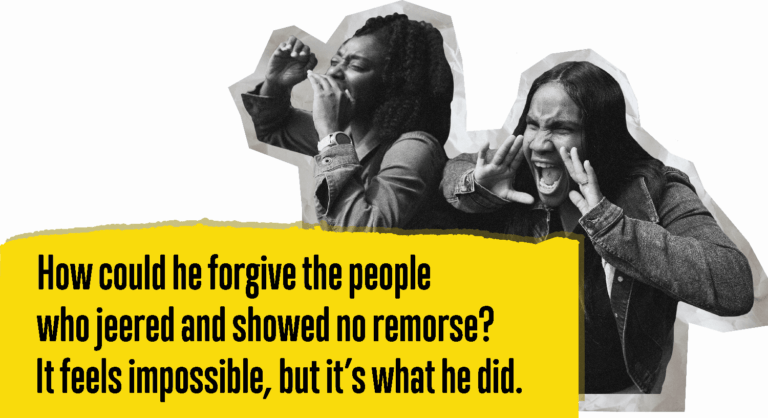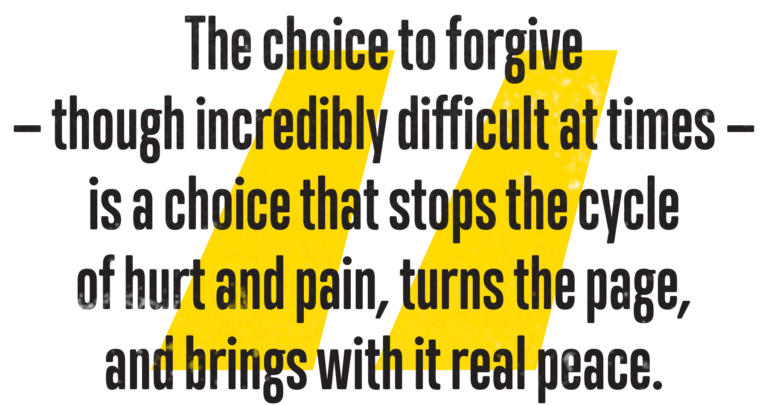Imagine being sentenced to death for something you didn’t do. Could you forgive the people who put you in that situation? Jesus did and his reason is even harder to fathom.
As we were looking at ways to talk about Jesus’ unexplainable forgiveness, we kept coming back to one moment — when Jesus forgave the people who put him on the cross. It’s a moment that almost becomes more difficult to comprehend the more you think about it. He said, “Father forgive them, for they don’t know what they are doing.”

How could he, an innocent man, possibly forgive the people responsible for his death as it was happening? How could he forgive the people who jeered and showed no remorse? It feels impossible, but it’s what he did.
 He asked a friend to take care of his mother, he comforted the man being crucified alongside him, and he prayed to God to forgive the people who put him on the cross. He came to preach forgiveness, to give forgiveness, and, in that moment on the cross, to model it.
He asked a friend to take care of his mother, he comforted the man being crucified alongside him, and he prayed to God to forgive the people who put him on the cross. He came to preach forgiveness, to give forgiveness, and, in that moment on the cross, to model it.
His earlier teachings — in the Sermon on the Mount and elsewhere — point us toward forgiving one another, and there’s a reason why. Jesus knew that seeking revenge or getting even doesn’t fulfill, and holding on to hatred and resentment only breeds more of the same.

Forgiveness is a two-way street. It is a powerful display of love for the one being forgiven, but that’s not all. It is also a release of resentment for the one doing the forgiving. The choice to forgive — though incredibly difficult at times — is a choice that stops the cycle of hurt and pain, turns the page, and brings with it real peace. It is a choice that is good for us.
Even when rejecting hatred and resentment was hard, Jesus chose forgiveness. He offered that forgiveness freely, and his call is for us to do the same.
Bible References: Luke 23:34, Luke 23:40-43, John 19:26-27, Matthew 5:38-42

